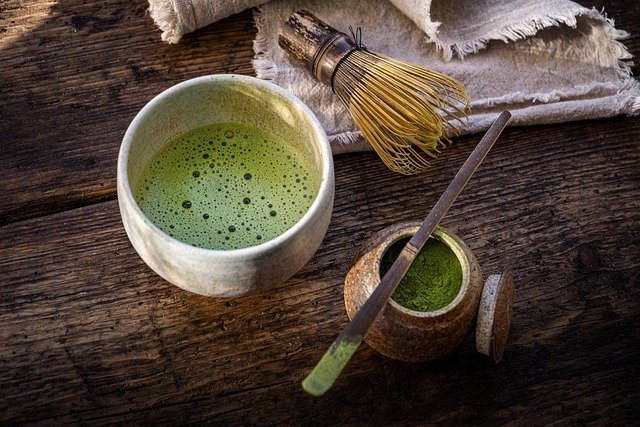This post may contain affiliate links, meaning that I may receive compensation if you make a purchase through these links. As an Amazon Associate, I earn from qualifying purchases. This compensation does not influence the content, or recommendations provided. The opinions expressed are my own, and I strive to provide honest and unbiased information.
Health Benefits of Green Tea: Nature’s Healing Elixir
Few beverages have earned the global respect that green tea enjoys. Celebrated in traditional medicine for centuries and validated by modern science, green tea is more than a soothing drink—it’s a wellness powerhouse. Packed with phytonutrients, antioxidants, and calming compounds, green tea delivers wide-ranging health benefits, from reducing cancer risk to boosting brain function.
Introduction: Why Green Tea is a Global Wellness Staple
Across cultures, green tea has been treasured as both a beverage and a natural medicine. From Chinese dynasties to Japanese tea ceremonies, it symbolizes purity, mindfulness, and vitality. Today, research confirms what ancient healers already knew—green tea is a true elixir for body and mind.
What Makes Green Tea Unique?

The History and Origins of Green Tea
Green tea originated in China nearly 5,000 years ago and quickly spread to Japan and beyond. Its use was rooted in both daily life and spiritual practices, often tied to meditation and holistic healing.
How Green Tea is Processed Differently
Unlike black tea, green tea is minimally oxidized. This preservation process maintains higher levels of catechins and antioxidants, making it one of the most nutrient-dense teas.
Key Nutrients and Compounds in Green Tea
Catechins: Potent Antioxidants
Catechins, especially EGCG (epigallocatechin gallate), are powerful antioxidants that help neutralize free radicals and prevent cellular damage.
L-Theanine: Stress-Relieving Amino Acid
This unique amino acid induces a state of calm alertness. When combined with caffeine, L-theanine improves focus without the jitters often linked to coffee.
Vitamins, Minerals, and Polyphenols
Green tea provides vitamin C, potassium, manganese, and a spectrum of polyphenols that support immunity and overall wellness.
Green Tea and Cancer Prevention
The Role of Catechins in Tumor Suppression
EGCG has been shown to slow the growth of cancer cells and reduce angiogenesis—the process by which tumors form new blood vessels.
Scientific Studies Supporting Cancer Protection
Research published in journals like Cancer Research and supported by the National Cancer Institute highlights that regular green tea consumption may lower the risk of breast, prostate, and colorectal cancers.
Additional Health Benefits of Green Tea
Supports Heart Health and Lowers Cholesterol
Green tea helps reduce LDL (“bad”) cholesterol while increasing HDL (“good”) cholesterol, supporting cardiovascular wellness.
Aids in Weight Management and Fat Burning
Green tea extract is a common ingredient in fat-burning supplements. It boosts metabolism and encourages fat oxidation, especially during exercise.
Enhances Brain Function and Focus
Caffeine in green tea, though modest, combined with L-theanine improves memory, attention, and cognitive performance.
Balances Blood Sugar and Diabetes Risk
Studies suggest green tea can improve insulin sensitivity, helping to regulate blood sugar and lower type 2 diabetes risk.
Promotes Healthy Skin and Anti-Aging
Polyphenols in green tea protect skin against UV damage and reduce signs of aging. Topical green tea extracts are even used in skincare products.
Different Types of Green Tea and Their Benefits

Matcha: Concentrated Powerhouse
Matcha is powdered green tea, providing the entire leaf’s nutrients. It contains up to three times more antioxidants than regular green tea.
Sencha: Japan’s Most Popular Green Tea
Sencha offers a balance of sweetness and bitterness, rich in catechins for immune support.
Jasmine Green Tea: Aromatic and Calming
Infused with jasmine blossoms, this tea blends green tea’s benefits with mood-lifting aromatics.
How Much Green Tea Should You Drink Daily?
Recommended Servings
Most studies suggest 3–5 cups daily provide optimal health benefits without overstimulation.
Possible Side Effects and Cautions
Excessive consumption can cause caffeine-related side effects or interfere with iron absorption. Those with medical conditions should consult a healthcare provider.
Green Tea vs. Coffee: Which is Better for Health?
Coffee may have higher caffeine, but green tea offers a smoother energy boost, superior antioxidants, and fewer side effects. For long-term wellness, green tea often wins.
Tips for Enjoying Green Tea the Right Way
Brewing Techniques for Maximum Benefits
Steep in water below boiling (75–85°C) to preserve delicate compounds.
Avoid over-steeping, which can make tea bitter.
Freshly brewed tea offers the most antioxidants.
Pairing Green Tea with Food
Green tea pairs beautifully with fish, rice dishes, light salads, and even fruit. Avoid pairing with iron-rich meals, as it may hinder iron absorption.
Frequently Asked Questions (FAQs)
Q1: Is green tea better than black tea?
Yes, green tea retains more catechins due to minimal processing, offering greater antioxidant benefits.
Q2: Can I drink green tea on an empty stomach?
It’s best to avoid it, as it may cause mild stomach upset in some individuals.
Q3: Is decaffeinated green tea still beneficial?
Yes, though it may contain slightly fewer antioxidants, it still provides valuable health compounds.
Q4: Does green tea help with weight loss?
It can aid fat burning and metabolism, but results are modest and best combined with healthy eating and exercise.
Q5: Can children drink green tea?
In moderation, yes. Choose low-caffeine versions for younger children.
Q6: Is bottled green tea as healthy as freshly brewed?
Not always. Bottled versions often contain added sugars and fewer antioxidants. Freshly brewed is best.
Conclusion: Making Green Tea Part of Your Daily Ritual
Green tea is more than just a refreshing beverage—it’s a daily ritual of wellness. With its blend of antioxidants, phytonutrients, and calming compounds, it supports nearly every aspect of health. From preventing cancer and heart disease to boosting focus and skin vitality, this ancient elixir is a timeless gift for modern living. By embracing green tea as part of your daily routine, you’re not just sipping a drink—you’re nourishing your body, mind, and spirit.
Reference: National Cancer Institute – Tea and Cancer Prevention
For additional information on cancer fighting foods, read: Cancer Prevention – Food Heroes


